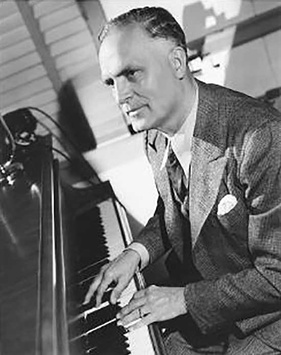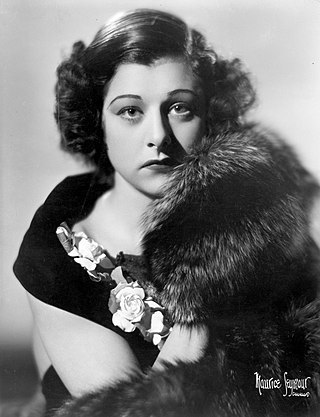
The Band Wagon is a 1953 American musical romantic comedy film directed by Vincente Minnelli, starring Fred Astaire and Cyd Charisse. It tells the story of an aging musical star who hopes a Broadway show will revive his career. However, the play's director wants to make it a pretentious retelling of the Faust legend and brings in a prima ballerina who clashes with the star. Along with An American in Paris (1951) and Singin' in the Rain (1952), it is regarded as one of the finest Metro-Goldwyn-Mayer musicals, although it was a box-office disappointment on first release.

Jean Schwartz was a Hungarian-born Jewish American composer and pianist. He is best known for his work writing the scores for more than 30 Broadway musicals, and for his creation of more than 1,000 popular songs with the lyricist William Jerome. Schwartz and Jerome also performed together on the vaudeville stage in the United States; sometimes in collaboration with Maude Nugent, Jerome's wife, and the Dolly Sisters. Schwartz was married to Jenny Dolly from 1913 to 1921.

Arthur Schwartz was an American composer and film producer, widely noted for his songwriting collaborations with Howard Dietz.

Howard Dietz was an American publicist, lyricist, and librettist, best remembered for his songwriting collaboration with Arthur Schwartz.

Ralph Rainger was an American composer of popular music principally for films.

Gay Divorce is a musical with music and lyrics by Cole Porter and book by Dwight Taylor, adapted by Kenneth Webb and Samuel Hoffenstein. It was Fred Astaire's last Broadway show and featured the hit song "Night and Day" in which Astaire danced with co-star Claire Luce.

Toby Wing, "Toby" being an old family nickname, was an American actress and showgirl, once called "the most beautiful chorus girl in Hollywood".

Elizabeth Lloyd Holman was an American socialite, actress, singer, and activist.
Inside U.S.A. is a musical revue by Arthur Schwartz (music) and Howard Dietz (lyrics). It was loosely based on the book Inside U.S.A. by John Gunther. Sketches were written by Arnold M. Auerbach, Moss Hart, and Arnold B. Horwitt.
The Cat and the Fiddle is a musical with music by Jerome Kern and book and lyrics by Otto Harbach. The story is about love and conflict between an American popular music composer and a European classical composer. Hit numbers from the show included "Try to Forget", "She Didn't Say Yes", "The Breeze Kissed Your Hair" and "The Night Was Made for Love."

The 44th Street Theatre was a Broadway theater at 216 West 44th Street in the Theater District of Manhattan in New York City from 1912 to 1945. It was originally named Weber and Fields' Music Hall when it opened in November 1912 as a resident venue for the comedy duo Weber and Fields, but was renamed to the 44th Street Theatre in December 1913 after their tenure at the theatre ended. It should not be confused with the Weber and Fields' Broadway Music Hall, often referred to as simply Weber and Fields' Music Hall and also known as Weber's Music Hall or Weber's Theatre, which was used by both Weber and Fields or just Weber from 1896 through 1912.

The Little Show was a musical revue with lyrics by Howard Dietz and music by Arthur Schwartz. It was the first of 11 musicals that featured the songs of Dietz and Schwartz. The revue opened at the Music Box Theatre on Broadway on April 30, 1929 and ran for 321 performances until February 1930.

The Band Wagon is a musical revue with book by George S. Kaufman and Howard Dietz, lyrics also by Dietz and music by Arthur Schwartz. It first played on Broadway in 1931, running for 260 performances. It introduced the song "Dancing in the Dark" and inspired two films.
"You and the Night and the Music" is a popular song composed by Arthur Schwartz with lyrics by Howard Dietz.
"Something to Remember You By" was written by Arthur Schwartz and Howard Dietz in 1930.
The Gibson Family is an American old-time radio program – the first original musical comedy on radio. It was broadcast on NBC from September 15, 1934, until June 23, 1935, when the format was revamped and the title was changed to Uncle Charlie's Tent Show, which ran from June 30, 1935, until September 8, 1935.

The Three-Cornered Hat is a novel written by Pedro Antonio de Alarcón in 1874. The piece should be classified as a short story and it contains popular tradition with a linear plot line. The novel has a theatrical format and it has been compared with the Miguel de Cervantes novel Don Quijote.

Three's A Crowd is a 1930 Broadway revue with lyrics by Howard Dietz and others, and music by Arthur Schwartz and others. It was “put together” by Howard Dietz, and produced by Max Gordon.

George-Radu Metaxa was a Romanian-born American singer, film & stage actor. He was known for his crooning high baritone voice and often portrayed genteel antagonists.
Ernest Albert, born Ernest Albert Brown, was an American painter, illustrator, muralist, and scenic designer. He was a prolific scenic designer, first in St. Louis and Chicago and then on Broadway. He is considered a major American landscape painter and was elected the first president of the Allied Artists of America in 1919.














